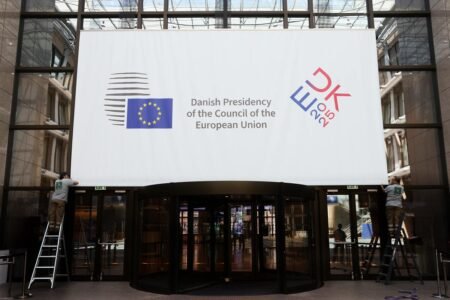(LUXEMBOURG) – The actions by armed forces during periods of armed conflict, within the meaning of international humanitarian law, may constitute ‘terrorist acts’, the European Court of Justice ruled on Wednesday.
The fact that the activities of the ‘Liberation Tigers of Tamil Eelam’ may constitute actions by armed forces does not affect the validity of the acts of the European Union relating to their inclusion on the list of those whose funds are to be frozen, says the Court.
According to the Netherlands authorities, A, B, C and D were involved in collecting funds for the ‘Liberation Tigers of Tamil Eelam’ (‘the LTTE’), an entity which fought a civil war against the Sri Lankan Government with a view to creating an independent State for the Tamil people in the north and east of Sri Lanka and which has been categorised as a ‘terrorist’ organisation by the EU for around 10 years.
The Netherlands authorities had subjected A, B, C and D to restrictive measures with a view to combating terrorism, freezing their financial resources. In that context, the Netherlands authorities concluded that the LTTE was a terrorist group.
However, A, B, C and D argued the regulation was invalid on the ground that the activities of the LTTE were not terrorist acts. In their view, the LTTE was in fact a non-State armed force engaged in a non-international armed conflict in Sri Lanka.
They said the EU was incorrect to regard the attacks and kidnappings carried out by the LTTE between 2005 and 2009 as ‘terrorist acts’ justifying its inclusion in an EU list concerning groups involved in terrorist acts.
In its judgment, the Court refers, first of all, to its case-law according to which a regulation providing for restrictive measures must be interpreted in the light of its historical context. The purpose of the acts of the EU in question is the implementation of Resolution 1373 (2001) of the United Nations Security Council, adopted following the terrorist attacks carried out in the United States on 11 September 2001.
They are chiefly intended to prevent terrorist acts by means of measures for the freezing of funds in order to hinder, inter alia, the financing of persons and entities liable to carry out terrorist acts. In that context, the designation of the persons and entities who are to be included on the list does not constitute a sanction, but rather a preventative measure.
Furthermore, the Court considers that customary international law does not prevent actions by armed forces during periods of armed conflict from constituting ‘terrorist acts’. It emphasises in that regard that international humanitarian law pursues different aims from EU law.
In addition, although some of the international conventions to which the Raad van State makes reference exclude from their scope actions by armed forces during periods of armed conflict within the meaning of international humanitarian law, they neither prohibit the State Parties from classifying some of those actions as terrorist acts nor preclude them from taking steps to prevent the commission of such acts.
Consequently, the Court finds that actions by armed forces during periods of armed conflict, within the meaning of international humanitarian law, may constitute ‘terrorist acts’ for the purposes of EU law.
Judgment in Case C-158/14 A and Others v Minister van Buitenlandse Zaken








